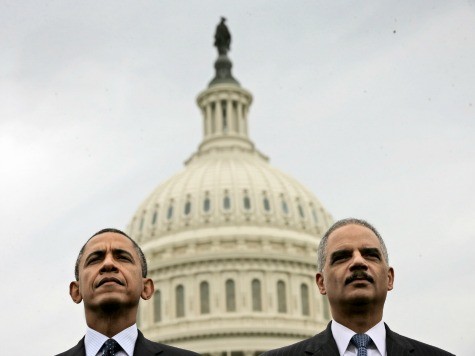
Sen. Jeff Sessions (R-AL) is blasting President Barack Obama’s reported plans to circumvent federal drug laws, calling it an abuse of power and an end run around the Constitution’s separation of powers.
Obama and Attorney General Eric Holder have long made it clear that they disagree with several current federal laws on illegal drugs. The White House has signaled it plans an unprecedented move to use Obama’s constitutional power to grant pardons to release from prison hundreds–or perhaps thousands–of convicted criminals because Obama does not believe what they did should be a serious crime.
Additionally, the Department of Justice is hiring additional lawyers for the Office of the Pardon Attorney (OPA), presumably to handle what would be a flood of applications for clemency. Article II, Section 2 of the Constitution says the president “shall have Power to grant Reprieves and Pardons for Offenses against the United States, except in Cases of Impeachment.”
Sessions–a prominent legal mind in the Senate–responded:
While the pardon power has been interpreted broadly, the Framers never intended for it to be used in this manner. Rather, they intended for it to be used on a limited, case-by-case basis to correct injustice, not to be a tool for the Administration to rewrite or even eliminate laws passed by Congress. We expect a president to exercise his powers with good judgment in accordance with our constitutional traditions and provisions, including the fact that Congress is vested with the power to establish sentencing laws. If this latest unilateral action becomes the norm, then what kind of Pandora’s box has the president opened? Can a president pardon all people convicted of financial fraud, or identify theft, or unlawful reentry into the country, or any category of crime when Congress does not act as the executive wishes?
This fits an emerging pattern seen in Holder ordering federal prosecutors not to pursue whole classes of drug crimes and Obama ordering dozens of mandatory provisions of the Affordable Care Act to be suspended for a certain length of time (mostly until after the midterm elections).
The president’s pardon power is considered absolute. Although it has never been used to virtually nullify a federal law before, it is unclear that there can be any meaningful response to blunt his actions.
Ken Klukowski is senior legal analyst for Breitbart News. Follow him on Twitter @kenklukowski.

COMMENTS
Please let us know if you're having issues with commenting.